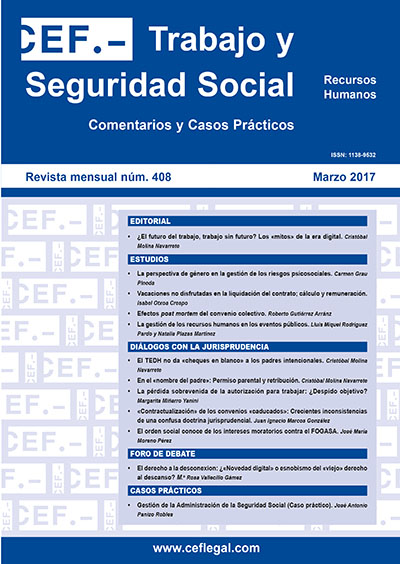The post mortem effect of the collective agreement
DOI:
https://doi.org/10.51302/rtss.2017.1916Keywords:
collective agreement, length, extinction, overlength, remission clauseAbstract
This paper deals with a nowadays hot issue which undoubtedly has practical (juridical and economic) repercussions. The 2012 legislators, leaning on counselling from expert economists (lobbys) and European recommendations/mandates, wanted to avoid evergreen clauses featured in collective agreements and, to that purpose, amended, among others, article 86.3 of the Spanish Worker's Statute. But as relevant as that is, and de facto even more, a prevailing new doctrine coming from Tribunal Supremo (still not a precedent, according to the technical terms exposed in article 1.6 of the Spanish Civil Code) has been laid out on its 22nd December 2016 ruling. The critical review of that and other rulings is the main focus of the present work, furthermore and maybe as important, because the previous has been abundantly done, bringing in, what we think, are alternative, more feasible solutions, legally and even for the dairy practice.
In fact, as it will be shown, with the interplay between good faith and abuse of power –both, because of the European influence, playing a more significant role in labor law– everything would have been solved in a more simple and logical way, avoiding twisted constructs that are more likely to cause collateral damage.



















